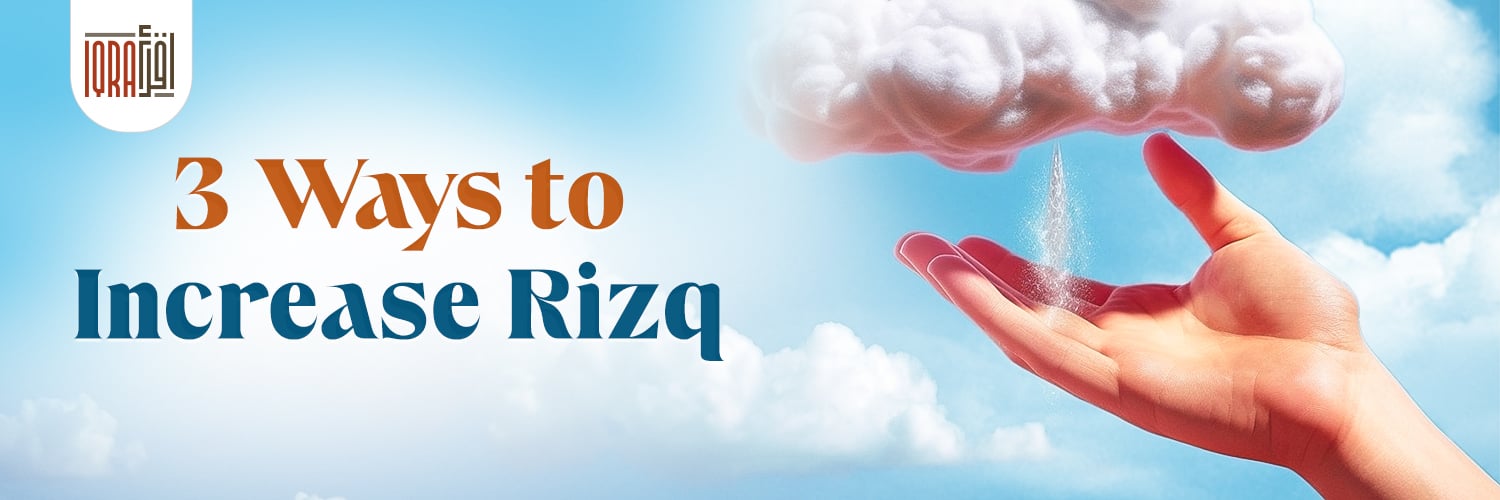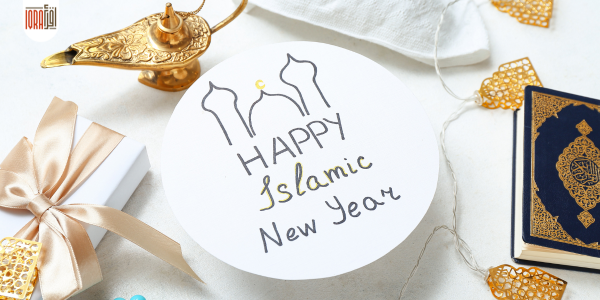“Nearly 40% of US households have faced serious financial problems, including struggling to afford medical care and food.” Source: The Guardian
Can you relate?
What does Rizq Mean?
Many of us understand the word “rizq” in Islam as the money we make. But it has a broader meaning. Our riqz, or sustenance, includes anything that we make use of. It doesn’t matter if this thing is good for us or even if it’s halal. Rizq can even have love because it is part of something we take from, and in this case, it benefits us. Some people are deprived of the rizq of love, while others receive it freely. Knowledge is also part of our rizq and anything else we can use in our lives.
As Muslims, everything we have and use connects to our Iman. It could be whether it’s halal or not, if we become grateful or not if we help others with it or don’t, etc. Increasing our rizq is to want to do better in our lives overall. It’s not only about tangible assets.
Abdullah ibn Masood (RA) narrates that the Messenger of Allah (SAW) said, “Verily the creation of each one of you is brought together in his mother’s womb for forty days in the form of a nutfah (a drop), then he becomes an alaqah (clot of blood) for a like period, then a mudghah (a morsel of flesh) for a like period, then there is sent to him the angel who blows his soul into him and who commands on him with four matters: to write down his rizq (sustenance), his life span, his actions, and whether he will be happy or unhappy (i.e., whether or not he will enter Paradise). By the One, other than Whom there is no deity, verily one of you performs the actions of the people of Paradise until there is but an arm’s length between him and it, and that which has been written overtakes him, and so he acts with the actions of the people of the Hellfire and thus enters it, and verily one of you performs the actions of the people of the Hellfire until there is but an arm’s length between him and it, and that which has been written overtakes him, and so he acts with the actions of the people of Paradise, and thus he enters it.” Hadith 4, 40 Hadith an-Nawawi
3 Ways to Increase Your Rizq
1. Don’t Fight for It (but work for it)
Rizq is synonymous with money; with money comes a lot of drama! Sometimes we think we’ll get more if we push hard for it. Sometimes that excessive trying will cause division in the family and tempt us to cheat or be dishonest to get what we want. Or it may lead us directly to unlaw earnings, like the lottery.
Allah has written our sustenance; we must sincerely try to work for it. We can create a genuine effort towards earning an income, having a happy marriage, raising kind, obedient children, etc. Muslims live a balanced life, we seek our rizq, but we don’t lose ourselves worrying about it or doing wrong to attain its many forms.
2. Say Alhamdulilah (All praise is to Allah)
And when your Lord declared, ‘If you express gratitude, I shall certainly give you more, and if you are ungrateful, then My punishment is severe.” Quran 14:7
Saying “Alhamdulilah” is a remembrance of Allah and a dua (supplication). Those that increase in saying Alhamdulilah, Allah gives them more.
While it’s easy to say, “increase in saying Alhamdulilah,” – it is not that simple. Developing the habit of saying “Alhamdulilah” often requires a mindset shift. We must count our blessings. In doing so, we aren’t looking at the negative of situations but the positive. This allows us to nurture a grateful heart, thus making it easy to remember to praise Allah (Alhamdulilah) with a heart full of gratitude.
3. Increase Istigfar (saying “Astogfirullah” – Allah forgive me)
How can asking Allah for forgiveness increases the sustenance in my life? We learn from the Prophet (SAW) that Allah will make way for us by frequently asking for forgiveness. Finding a way out of our distress means our options of receiving help increase. We can make use of something different that we never thought of.
Ibn’ Abbas (RA) narrates: The Messenger of Allah (SAW) said, “If anyone constantly seeks pardon (from Allah), Allah will appoint for him a way out of every distress and a relief from every anxiety and will provide sustenance for him from where he expects not.” Riyad as-Salihin 1873
The Prophet (SAW) said, “By Allah! I ask for forgiveness from Allah and turn to Him in repentance more than seventy times a day” Sahih al-Bukhari 6307. If that’s the Prophet (SAW), who has seen his place in Jannah, what about us? Of course, we should do it as often as we can.
Increasing our rizq is more than just making more money. By learning to be balanced, praising Allah often, and repenting to Allah, we automatically increase our opportunities in life. Just by making a conscious effort, we can transform our lives.





0 Comments
Oops comments are disabled